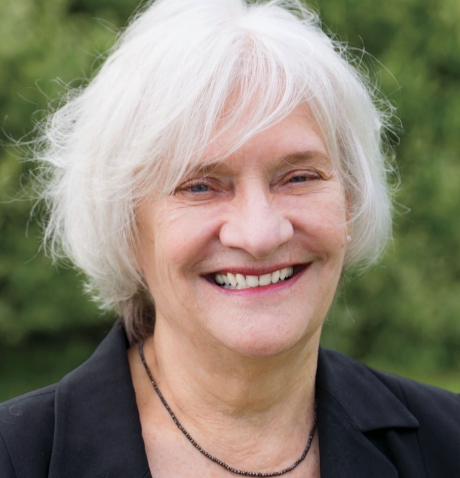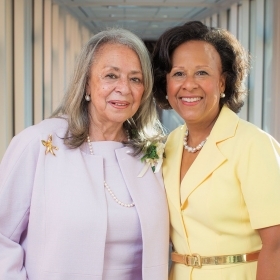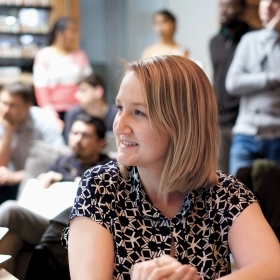Judith Moore ’71 remembers in vivid detail the moment in 1982 when she became aware of the seriousness of climate change. She had left activist work setting up shelters for survivors of domestic violence in Boston and was living on St. John in the Virgin Islands, getting to know the land, the ocean, and the people there.
“I was waiting to go to my job as a clerk at a T-shirt shop and was in a snack hut,” she says, “and somebody had discarded a Science News there, so I picked it up and just started leafing through it.” The small article that caught her eye—and then launched her into a career dedicated to environmental sustainability—said scientists had noted indications that carbon loading would bring climate change to the planet.
“It hit me like a brick that this was big, that this was something that was really going to matter,” Judith says. She still has the magazine.
A religion major at Wellesley, Judith went on to the Yale School of Forestry and then MIT for her Ph.D. in regional planning. In graduate school, she says, the faculty were not nearly as concerned about climate change as she had become.
“It’s been a long, slow awakening across the global community,” she says. During and after graduate school, she worked with the World Wildlife Fund, but the bulk of her career was spent at the World Bank. She worked on community resiliency and then segued into corporate responsibility—charged with determining how the World Bank could both advocate for environmental stewardship and also manage its own internal financial transactions accordingly. What would it look like, for example, for the World Bank to become carbon neutral? Could it direct investment dollars specifically to projects that were addressing environmental issues?
The World Bank raises money to loan out to countries in need by borrowing from investors. Judith says, “Investors were asking if they could only invest in green projects.” Eventually, the answer became yes. “It was quite to my surprise that it took off.”
Judith is also surprised to find herself now, post-World Bank, working with a startup firm focused exclusively on environmentally and socially responsible investing, Affirmative Investment Management, based in London. (She divides her time between London and Washington, D.C.) She says to meet the firm’s green criteria, a portfolio might include forestry, energy, or transportation projects, often, but not always, in developing countries.
“We really work hard to try and get diverse,” she says, noting that a proposed fund will be scored on the same criteria as mainstream investments. The idea is to offer an alternative fund that will not negatively impact the investor’s bottom line.
If you’re interested in directing your own investments toward green projects, Judith says to ask your financial advisor about funds aimed at combating climate change. She says this may take some effort on your part. Eventually, her firm hopes to make such investment opportunities available to individual investors, too.
Judith says in the past, green investing was considered a niche, reserved for people who could afford to lose money. But increasingly, mainstream investment firms are offering green options. And with good reason.
“Right now, at this particular slice in time, there’s not a compromise in returns at all,” Judith says.
It’s another milestone in her long observations of the world waking up to the realities of a changing climate.








We ask that those who engage in Wellesley magazine's online community act with honesty, integrity, and respect. (Remember the honor code, alums?) We reserve the right to remove comments by impersonators or comments that are not civil and relevant to the subject at hand. By posting here, you are permitting Wellesley magazine to edit and republish your comment in all media. Please remember that all posts are public.